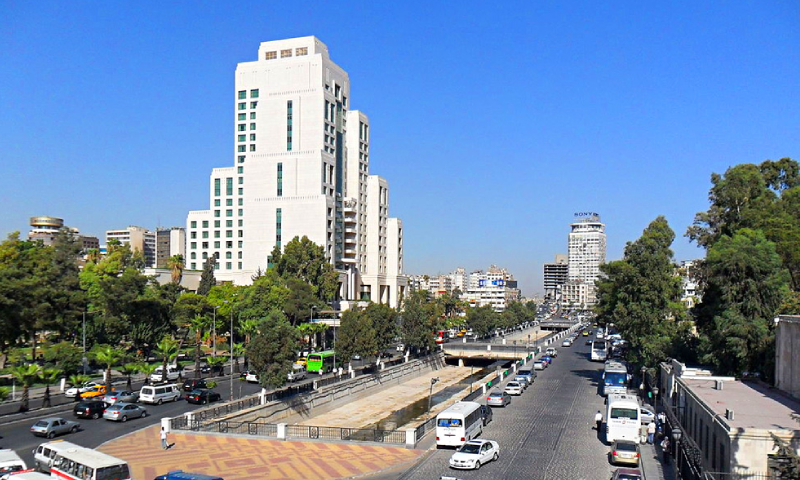Written by: Abbas al-Mousa
Syrians are entering the 10th year of conflict – a conflict that began when peaceful demands were met with overwhelming violence and military force by the Bashar al-Assad regime. The Syrian regime has not only employed military force against its people, but has also issued and amended laws to target those who oppose the regime and strip them of their rights. The most dangerous of these laws relate to property rights and real estate affairs. New legislation systematically undermines the property rights of Syrian who have fled the conflict and whose property deeds were lost or destroyed in the fighting, preventing opposition supporters (as well as refugees and those internally displaced) from returning to their hometowns, providing an opportunity for the Assad regime to change the demographic make-up of the country.
The Syrian regime has issued numerous laws leading to the confiscation of property, including the Anti-Terrorism Act (Law 19) of 2012, a poorly masked attempt at imprisoning members of the opposition and confiscating their property. It was followed by several laws and legislative decrees under the premise of reconstructing lands impacted by the war by regulating areas of informal settlements in Syria, the most well-known of which is Law No. 10 of 2018.
On January 21, 2020, through the Cabinet, the Syrian regime issued Decree No. 5. Under Decree No. 5, property and vehicle sales will not be officially documented by authorities unless the buyer deposits the full or partial sale amount into the seller’s bank account. The decree facilitates procedures for opening a Syrian bank account for both Syrians and foreigners.
The Syrian regime is struggling to stop currency free fall, a reflection of the destruction of the Syria economy in regime-held areas. The lira has spiraled downwards, losing more than 10 times its original value since 2011. Considering this context, Decree No. 5 is believed to have been issued to help the Assad government support the Syrian lira by pulling cash from people who have lost trust in banks as a result of the government’s policies. In this process, the government expects to increase the demand for the Syrian lira, and thereby increase the currency’s value, even if that means a slight increase against the US dollar.
Contrary to the belief that the decree was issued to regulate buying and selling of real estate and vehicles and to restrict dealing only in the Syrian lira instead of the US dollar, many view this decree as an infringement on the right of ownership for Syrians for the following reasons:
- The decree compels both the seller and the buyer to deal through banks, and consequently these banks benefit by deducting fees for the transfer of funds, thus forcing Syrians to conduct business for the profit and benefit of these banks.
- The decree forces Syrians to deposit money in the banking system amidst a crashing economy, justifiably raising fears that they will not be able to withdraw it later, as is currently happening in Lebanon.
- The right to ownership is a right safeguarded by international laws as well as the 2012 Syrian constitution. The constitution provides three basic rights of ownership, and any violation of them is considered an infringement of the right to ownership. Decree No. 5 imposes restrictions on the transfer of property by forcing the owner to follow a specific process, thereby violating the constitution in an illegal action that undermines property rights.
- Through this decree, a criminal regime that has displaced half of the Syrian population aims to leave refugees and internally displaced persons (IDPs) unable to prove ownership of land that has been in their family for generations. Most IDPs are residents of makeshift/transitory areas or poorly planned areas, where they were previously able to buy and sell through the court or the notary public. However, according to this decree, they can no longer transfer their properties that they were forced to leave behind, simply because they cannot open a bank account to perform the transaction.
This decree reaffirms that Syrians have every reason to mistrust the Assad regime, and that all decrees and laws issued by the regime exist only to serve its interests.
The Day After (TDA) is working to protect property rights in Syria, especially those related to forcibly/internally displaced persons. TDA works in coordination with local and international partners to find the most effective way to monitor and document these violations committed by the Syrian regime and to find mechanisms to address them.
The Syrian regime has effectively used a progression of minimalistic legislative and policy interventions to change the demographic make-up of its population. The restitution of property requires the concerted effort of all those who sympathize with the cause of the Syrian people as well as all organizations – international, regional and local – that support human rights.
Abbas al-Mousa is a housing, land and property (HLP) expert and program manager with The Day After.
